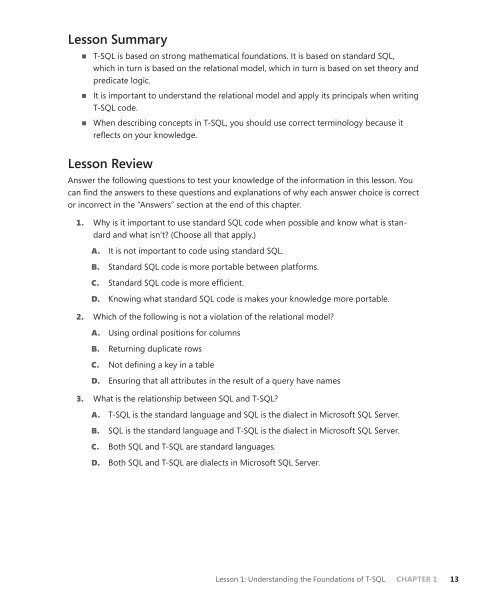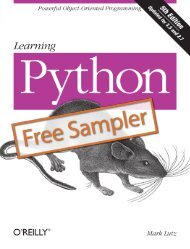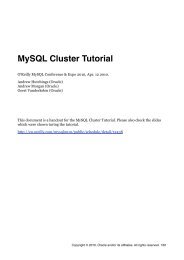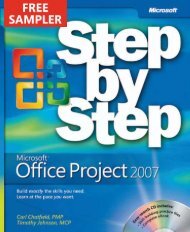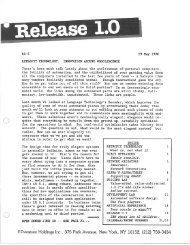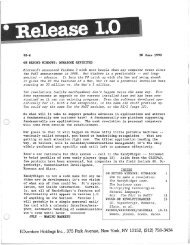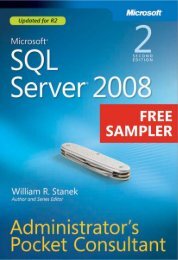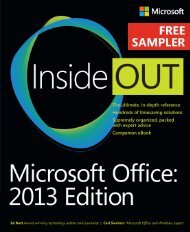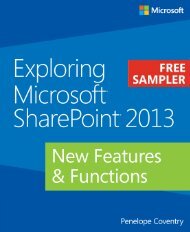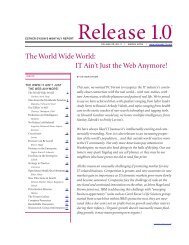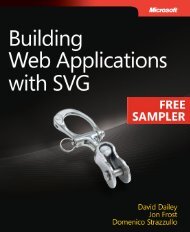Training Kit (Exam 70-461): Querying Microsoft ... - Cdn.oreilly.com
Training Kit (Exam 70-461): Querying Microsoft ... - Cdn.oreilly.com
Training Kit (Exam 70-461): Querying Microsoft ... - Cdn.oreilly.com
You also want an ePaper? Increase the reach of your titles
YUMPU automatically turns print PDFs into web optimized ePapers that Google loves.
Lesson Summary<br />
■■ T-SQL is based on strong mathematical foundations. It is based on standard SQL,<br />
which in turn is based on the relational model, which in turn is based on set theory and<br />
predicate logic.<br />
■■ It is important to understand the relational model and apply its principals when writing<br />
T-SQL code.<br />
■■ When describing concepts in T-SQL, you should use correct terminology because it<br />
reflects on your knowledge.<br />
Lesson Review<br />
Answer the following questions to test your knowledge of the information in this lesson. You<br />
can find the answers to these questions and explanations of why each answer choice is correct<br />
or incorrect in the “Answers” section at the end of this chapter.<br />
1. Why is it important to use standard SQL code when possible and know what is standard<br />
and what isn’t? (Choose all that apply.)<br />
a. It is not important to code using standard SQL.<br />
B. Standard SQL code is more portable between platforms.<br />
c. Standard SQL code is more efficient.<br />
D. Knowing what standard SQL code is makes your knowledge more portable.<br />
2. Which of the following is not a violation of the relational model?<br />
a. Using ordinal positions for columns<br />
B. Returning duplicate rows<br />
c. Not defining a key in a table<br />
D. Ensuring that all attributes in the result of a query have names<br />
3. What is the relationship between SQL and T-SQL?<br />
a. T-SQL is the standard language and SQL is the dialect in <strong>Microsoft</strong> SQL Server.<br />
B. SQL is the standard language and T-SQL is the dialect in <strong>Microsoft</strong> SQL Server.<br />
c. Both SQL and T-SQL are standard languages.<br />
D. Both SQL and T-SQL are dialects in <strong>Microsoft</strong> SQL Server.<br />
Lesson 1: Understanding the Foundations of T-SQL chapter 1 13


